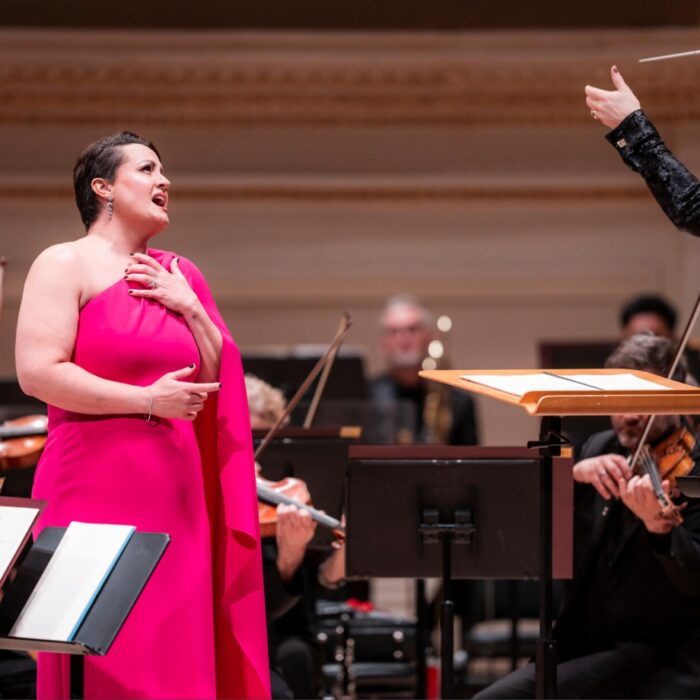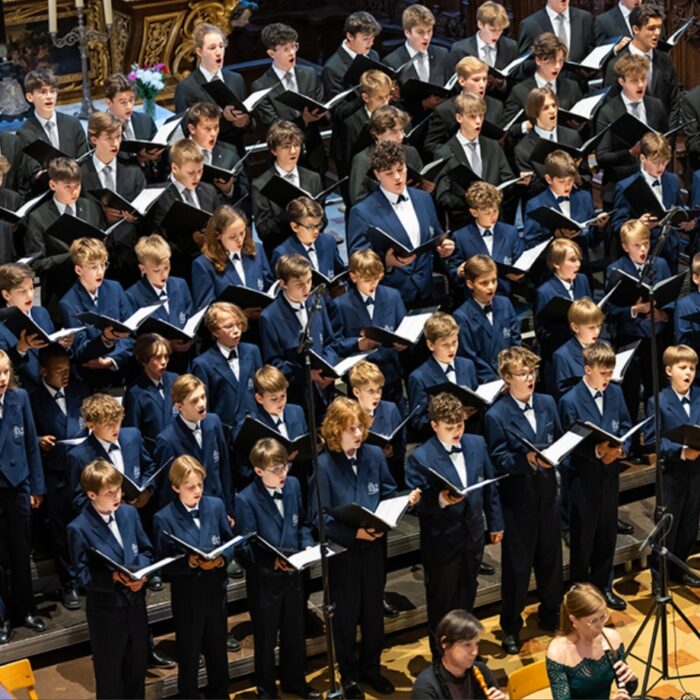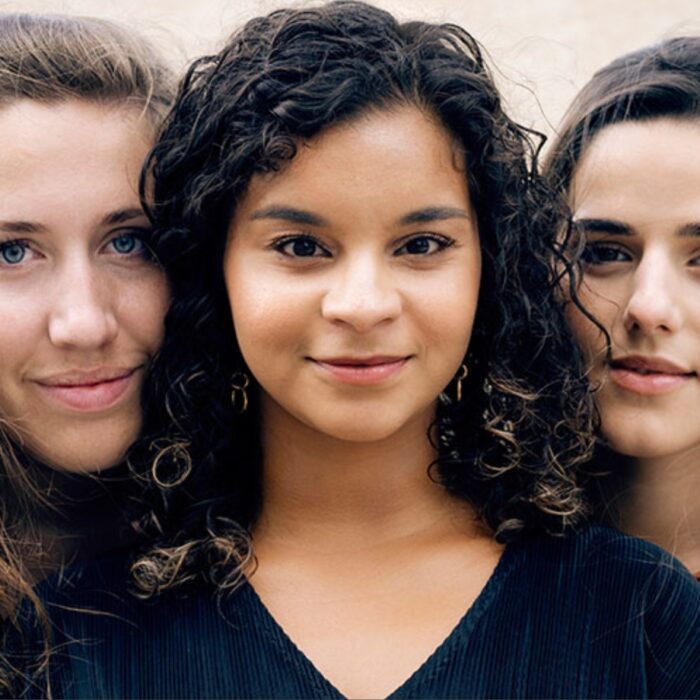
Bayreuth Festival 2023 Review: Tannhäuser
By Katerina Bezgachina(Photo credit: © Enrico Nawrath)
Nathalie Stutzman debuted at Bayreuth this season with the festival’s production of “Tannhäuser.” She emerged triumphantly from the mystical abyss of the Bayreuth orchestra pit, where the conductor and the orchestra are hidden from the public. This unique orchestra space was designed as per Wagner’s specifications, who had been striving to create an immersive experience by removing the orchestra from sight and blending music, verse, and stage acting.
Beginning with the first notes in the overture, Nathalie Stutzmann led everyone into a world of Wagner’s fantasies. Forgetting time, space, and reality, only music and the unfolding drama on stage mattered. This was a literal embodiment of the popular saying, “Arts last while life is short,” (Ars longa vita brevis).
Director Tobias Kratzer worked with the earlier Dresden version of the opera. It features an extended overture and lacks a ballet scene at Venus Hill, which was added later for Paris. The overture is a background to a short movie about the free-loving spirit of Venus Hill. Tannhäuser in his clown outfit and the goddess roam the world. They do so in an old van accompanied by a drag queen, Le Gateau Chocolat, and a midget. This is a direct reference to Oskar Matzerath from Günter Grass’ novel, “The Tin Drum.”
Sensual vs. Spiritual
The first duet of the poet and the goddess hints at a dramatic conflict about to unfold. Tannhäuser pleads with Venus to let him go back to his normal life of his established social circles, “Aus deinem Reiche, muss ich fliehn! O Königin! Göttin! Lass mich ziehn!” Tenor Klaus Florian Vogt, who sang Heinrich Tannhäuser, mastered this difficult part perfectly. He never forced the notes or pushed too hard when singing higher pitches. His voice flowed naturally and smoothly, enchanting you as a true bard would do with his art. At the same time, his voice always preserved the strength and clarity expected from a Wagnerian tenor, especially during the song contest scene in the second act.
Ekaterina Gubanova, an experienced Wagner mezzo-soprano, performed Goddess Venus. She had a beautiful tone and clear articulation combined with the allure and playfulness of a hippy goddess who does not accept compromises, banning Tannhäuser from her kingdom when he insists on leaving. In the second act, she appears in Wartburg and adds comical elements by crashing the contest scene in the opera with her unorthodox company, the dwarf and the drag queen.
In this production, the conflict between sensual and spiritual love is manifested in the social tensions that separate the other, or alternative, world of Venus and the normal world of Elizabeth and society at Bayreuth. On stage, we see a small replica of the Festival Theater on Green Hill. Singers perform at Bayreuth and pilgrims are the festival goers. Chorus scenes are particularly strong, reaching a climax in the second act during the guest’s arrival in the ceremonial hall. The third act is when pilgrims are replaced with the convicts released after serving their sentences, “Beglückt darf nun dich, O Heimat, ich schauen.”
Opera Within an Opera
The second act is an opera production of Tannhäuser at Bayreuth. The stage is split into two parts. In the upper half, a giant screen projects a video sequence of backstage actions, while on stage we see the opera song contest in Wartburg.
Video projections are a regular feature in most modern operas, these days. In this case, the video and the stage are perfectly blended. The video sequence only enhances Wagner’s music, making it more relevant to the public. Posing the ultimate question about the meaning of art in our life.
Is art for the sake of art, or a real force of change?
The role of Elizabeth is sung by soprano Elisabeth Teige. She has a beautiful and strong voice, especially in her higher register. Her piercing shriek,”Haltet ein,” ends the ostracism of Tannhäuser when he fails to stay within the established social norms. Another colorful and convincing appearance is given by bass Günther Groissböck as Landgraf von Thüringen. South African tenor, Siyabonga Maqungo, offers a fresh and tender interpretation of Walther von der Vogelweide.
In the final third act, we experience a different world. The old van is falling apart, Venus has left, and her entourage is either abandoned, like Oskar, or making it into the world. It is like a Le Gateau Chocolate with a giant advertising poster. Elizabeth is venturing into the other world, searching for Tannhäuser. Wolfram von Eschenbach, sung by baritone Markus Eiche, follows her. He is struggling to fill the void of unrequited love and loss of his friend. Melancholy and nostalgia are expressed in his most tender aria, with the harp accompaniment, “O du mein holder Abendstern.” Eiche’s rendition was touchingly beautiful and romantic.
At the end, salvation comes not through redemption, but when Elizabeth and Heinrich transcend into the imaginary realm. In the video projection, both roam their romantic world in the old van, where they are finally free.
The fantasy ends, and we are back in our time with our art.


